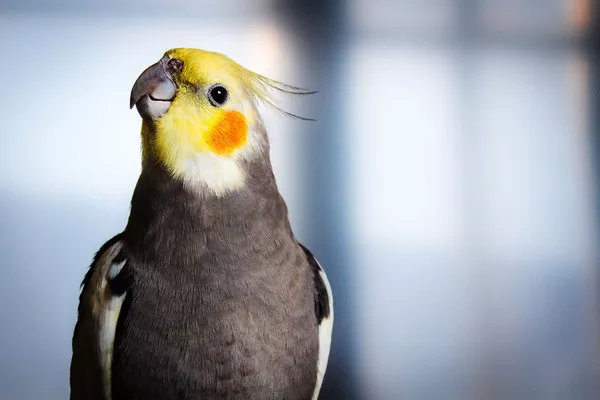Betta fish, also known as Siamese fighting fish, are popular aquarium pets known for their vibrant colors, flowing fins, and unique personalities. They are native to Southeast Asia and are commonly kept in homes and offices around the world. As with all pets, understanding their natural behaviors is crucial for ensuring their health and well-being. One common question that often arises among betta fish owners is whether betta fish sleep during the day.
In this article, we will explore the sleeping patterns of betta fish, how their sleep differs from other animals, and how you can create an environment that supports their natural sleep cycles.
Understanding Betta Fish
Before diving into the topic of sleep, it’s important to have a basic understanding of betta fish and their natural behaviors. Betta fish (scientifically known as Betta splendens) are small freshwater fish with a reputation for being territorial, especially the males. They are known for their striking appearance, which includes long, flowing fins and vibrant colors, which can range from shades of blue and red to purple and white.
Betta fish are labyrinth fish, meaning they have a specialized organ called the labyrinth organ that allows them to breathe air from the surface, in addition to obtaining oxygen from the water through their gills. This adaptation allows them to survive in low-oxygen environments, such as rice paddies, where they are commonly found in their native habitat.
Betta fish are generally solitary and may become aggressive toward other males. However, females can be kept together in groups known as “sororities” if proper space and hiding spots are provided. In the wild, betta fish live in shallow, slow-moving waters and plants, which they use for hiding, nesting, and resting.
What Does It Mean for Betta Fish to Sleep?
Like most animals, betta fish do have periods of rest that could be considered sleep. However, their sleep behavior is quite different from that of mammals or even other types of fish. To understand how betta fish sleep, it’s important to understand that they do not sleep in the same way that humans do. While humans experience deep REM sleep cycles, betta fish don’t experience sleep in this way. Instead, their “sleep” is characterized by periods of inactivity, during which their metabolic rate decreases.
Betta Fish and Rest Periods
Betta fish rest throughout the day and night, but they do not have a regular sleep cycle like humans. Instead, they take several short periods of rest during the day and night. These periods are often characterized by the fish resting near the bottom of the tank or floating near the surface, with little movement or activity.
Since betta fish are naturally crepuscular, meaning they are most active during dawn and dusk, their sleep patterns tend to follow this rhythm. Betta fish will rest during the bright daylight hours but may become more active when the light dims in the evening or early morning. This means that betta fish do indeed sleep during the day, but they are also likely to take naps during the night, with periods of activity interspersed between.
Are Betta Fish Diurnal or Nocturnal?
Betta fish do not strictly follow a diurnal or nocturnal pattern like humans, who are active during the day and rest at night. Instead, betta fish are considered crepuscular, meaning they are most active during the early morning and evening hours when the light is dim. This makes sense considering the fish’s natural habitat, where they would encounter low-light conditions during certain times of day in the wild.
While betta fish do not have the same sleep cycles as mammals, they still need adequate rest to maintain their health. If a betta fish does not get enough sleep, it may become stressed, which can lead to various health issues.
Betta Fish Sleeping Habits
Betta fish sleeping habits can vary depending on several factors, such as their environment, diet, and overall health. However, there are several key characteristics that can help you recognize when your betta is resting.
1. Resting Near the Bottom
When betta fish are resting, they may spend time near the bottom of the tank. They often find a quiet spot near plants or decorations to “sleep” and may hover in place without much movement. This resting period may last anywhere from a few minutes to an hour.
2. Floating Near the Surface
In some cases, betta fish may float near the surface of the water during rest periods. This is especially common if they need to breathe in oxygen from the air. Since betta fish have the labyrinth organ, they often rise to the surface and take gulps of air between their rest periods. This floating behavior is normal and does not mean the fish is sick or stressed.
3. Reduced Activity
One of the main signs that a betta fish is resting or “sleeping” is a reduction in activity. Betta fish are known for their curiosity and tendency to explore their environment. However, when they are resting, they will appear more still and less interested in exploring their surroundings.
4. Less Coloration and Fins Closer Together
Another common sign of a resting betta is the reduced spread of its fins. Betta fish usually display their long, flowing fins when they are active or interacting with their environment. When resting, the fins may be held closer together, and their overall body posture may become more relaxed. Betta fish also may appear less colorful when they are in a resting state.
5. Hiding Behavior
Sometimes, bettas may also choose to rest or sleep in a hiding spot, such as in a cave, behind decorations, or in the plants in their aquarium. This behavior is particularly true for shy or more stressed bettas who feel the need to hide to get some rest.
Do Betta Fish Need Darkness to Sleep?
While betta fish do not experience deep REM sleep cycles, they still require a natural light-dark cycle for their overall well-being. In their native environment, betta fish are exposed to both periods of light and darkness, and they rely on this cycle to regulate their biological rhythms.
A consistent light schedule is important for betta fish to establish a healthy sleep pattern. If your betta is exposed to constant light, it may become stressed or have difficulty resting. Therefore, it’s essential to replicate a natural day-night cycle in your aquarium. A good rule of thumb is to provide 10-12 hours of light during the day and 12-14 hours of darkness at night.
It’s important not to leave the aquarium lights on 24/7. Doing so can disrupt the betta’s natural rhythms, causing stress and potentially leading to health problems like weakened immunity or aggression.
Factors That Affect Betta Fish Sleep
Several factors can influence the sleeping patterns of betta fish, including the environment, temperature, water quality, and tank mates. Understanding these factors can help you create an environment that supports your betta’s natural sleep cycle and overall health.
1. Water Temperature
Betta fish are tropical fish that thrive in warm water temperatures. They are most comfortable in water that is between 75°F and 80°F (24°C and 27°C). When the water temperature is too cold, betta fish may become lethargic, which could affect their ability to sleep. A heater is essential to maintain a stable and warm water temperature for your betta fish.
If the water is too cold, bettas may become stressed or sluggish, which can disrupt their rest periods. A heater helps ensure that your betta fish can rest peacefully and maintain their natural sleep cycle.
2. Water Quality
Poor water quality can also affect your betta’s ability to sleep and rest properly. Betta fish are sensitive to water conditions, and poor water quality can lead to stress and illness, which could disrupt their sleep. It is essential to perform regular water changes to maintain a clean and healthy environment.
Betta fish need clean water with stable parameters, including pH, hardness, and ammonia/nitrite/nitrate levels. A good filtration system can help keep the water clean, but regular water changes are still necessary.
3. Tank Size and Environment
While bettas can survive in small tanks, providing a larger aquarium with plants, hiding spots, and decorations is ideal for their well-being. A more spacious environment with places for them to hide and explore can help reduce stress and allow them to sleep more comfortably.
Too much noise, movement, or activity around the tank can disturb a betta fish’s sleep. It is essential to place the aquarium in a quiet, low-traffic area where your betta will not be constantly disturbed. Betta fish also appreciate having plants or decorations in the tank to provide shelter and give them a sense of security during their rest periods.
4. Stress and Tank Mates
Betta fish are territorial creatures, and having incompatible tank mates can cause stress that disrupts their sleep. Male bettas, in particular, may become aggressive toward other males or certain species of fish, leading to constant tension in the tank. Stress can interfere with a betta’s sleep, leading to fatigue and health problems.
If you keep multiple bettas or other species in the same tank, it is essential to make sure that the tank is large enough to accommodate them comfortably. Additionally, providing plenty of hiding spaces can help reduce stress and promote restful sleep.
5. Feeding Schedule
Betta fish may also have different sleep patterns depending on their feeding schedule. Overfeeding or feeding too late at night can disrupt their natural rhythms. It’s best to feed your betta fish during daylight hours and avoid feeding them right before the lights go out for the night.
How to Help Your Betta Fish Sleep Better
Creating the ideal environment for your betta fish is crucial to supporting their sleep and overall well-being. Here are some tips to help your betta fish sleep better:
Provide a Consistent Light-Dark Cycle: Ensure that your betta fish is exposed to 10-12 hours of light and 12-14 hours of darkness each day to help them maintain a healthy sleep schedule.
Maintain the Right Water Temperature: Keep the water temperature in the optimal range of 75°F to 80°F (24°C to 27°C) to ensure your betta is comfortable and can rest properly.
Offer a Spacious and Enriching Environment: Give your betta fish a larger tank with plenty of plants, decorations, and hiding spots to promote a sense of security.
Avoid Overcrowding: Betta fish are territorial, so avoid keeping multiple males together. If you keep other fish with your betta, make sure they are compatible and provide enough space.
Ensure Clean Water: Perform regular water changes and maintain proper filtration to keep the water clean and support your betta’s health.
Limit Stress: Avoid sudden changes in the environment, such as loud noises, rapid movements, or changes in tank setup, which could disrupt your betta’s sleep.
Conclusion
Betta fish do sleep, but their sleep is quite different from the sleep cycles of humans or other animals. Betta fish engage in periods of rest throughout the day and night, with reduced activity and less movement. They may sleep at various times during the day, especially when exposed to bright light, and they are naturally more active during the early morning and evening hours.
By creating an optimal environment with the right water temperature, lighting, and a peaceful habitat, you can help your betta fish get the rest they need. Understanding your betta’s natural behavior and sleep patterns will ensure they remain healthy, happy, and active in their aquarium home.
Related Topics:





















